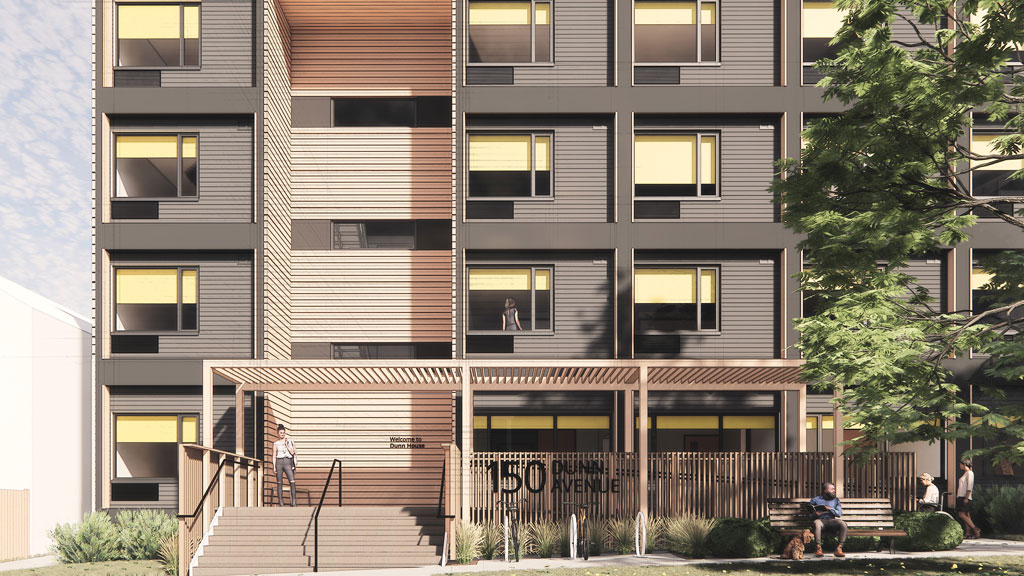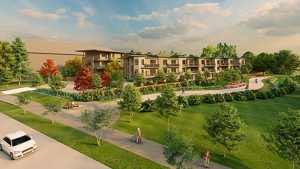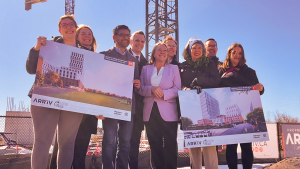At its final full meeting this term, Toronto City Council approved more than 24,000 new homes.
Following the four-day meeting July 19 to 22, city staff calculated that council approved a total of 24,829 housing units, including 2,060 affordable and 2,413 purpose-built rental units and 775 rental replacement units, many supported by various city initiatives.
Chief planner Gregg Lintern commented in a statement, “Approving almost 25,000 housing units in a single city council meeting meant moving mountains for city staff and everyone involved in the development review process.”
Deputy Mayor Ana Bailao, chair of the planning and housing committee, who has announced she is not running for municipal office in the fall, added, “The number of affordable units approved in the council meeting is unprecedented and impressive.”
Toronto Housing Secretariat executive director Abi Bond said the public housing success is the result of a variety of efforts and programs reaching fruition, with the city’s two-year-old HousingTO 2020-2030 Action Plan providing a comprehensive housing framework and such programs as Housing Now, the new Multi-Unit Residential Acquisition (MURA) program, the Modular Housing Initiative and the Open Door Affordable Housing Program all exploited to launch various housing initiatives.
To support the Modular Housing Initiative, council approved the allocation of $28.75 million in funds from the Development Charges Reserve Fund for Subsidized Housing for capital development costs as well as spending of $12.76 million in City Open Door Affordable Housing Program financial incentives.
Additionally, the city has secured approximately 624 affordable units as a community benefit sourced across 11 development applications.
The Action Plan includes a $27-billion capital spending target and the City of Toronto has committed $7 billion towards it. Last year was the first year of the 10-year plan, Bond explained.
“I think the city is making the necessary investments to deliver on the plan,” she said. “What we’re not seeing to a sufficient degree yet is the necessary investments from the other two orders of government, from the federal and provincial governments. We’ve identified multiple times that this is an ambitious plan, and the city cannot do it on its own.
“We’re definitely leading on our investments.”
Through the Action Plan, the city is committed to approving 40,000 affordable rental homes, including 18,000 supportive homes, by 2030.
Bond explained the city decided to step up the supportive housing component of the Action Plan once the pandemic hit, adopting a two-year plan and harnessing a number of resources including leveraging its own land.
There are currently over 17,000 new affordable rental and supportive homes at various stages of development in the city’s pipeline, including over 2,000 new supportive homes.
In May 2022, council approved a new 24-month plan, the 2023-2024 Housing Recovery and Resilience Plan, to further deliver new homes for people experiencing homelessness.
Recent discussions on Ontario’s housing shortage have referred to the golden age of public housing back in the 1970s when governments created many thousands of long-term, permanent market rental housing unit along with other housing types, Bond explained.
Today, Bond said, “We need to see a bigger spectrum of activity. So right now, we’re definitely seeing some interest from the federal government in creating affordable housing. We’re definitely taking the first step towards a new era of creation of supply, but there’s more to do.”
The 2022 portfolio of public housing initiatives represents a variety of deals with public, private and charitable bodies using innovative incentives. For example, at its last July session council approved the city entering into a long-term lease with the University Health Network for the purpose of creating new affordable housing.
There are also discussions with such agencies as the United Church.
“We are working with the right kind of partners who are doing the right thing,” said Bond. “We just need to be doing more of it. So we need new partners.
“And they come to us every day. I’m always getting calls or emails from people who are interested in getting into affordable housing.”
Bond said she is confident the city is capable of delivering on its Action Plan targets.
“We could deliver on that ambitious plan. I absolutely think that’s the case.
“We have the right know-how, we know what we’re doing. We know what we need to do. And we can keep that momentum up. And we just need to bring everyone along – this is all a community response.”
Follow the author on Twitter @DonWall_DCN.











Recent Comments
comments for this post are closed